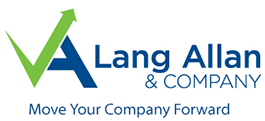Due diligence is an investigation, an audit, or a review performed to confirm facts or details of financial records. The objective is to confirm the accuracy and appraise the value. Audits often help uncover issues and avert potential ones in the future.
When you outsource accounting, you’re allowing an in-depth analysis of your company’s financial records by another company. It’s clear that you’d want such an engagement to ensure your firm’s credibility, providing management-level expertise and giving you confidence in your financials. Monthly reconciliations are performed for bank accounts to verify:
- All revenue and expenditure activity in your records on a monthly basis.
- That the amounts shown on accounts payable are true payables, ensuring timely paying of your vendors and helping you take advantage of discounts given for early payments.
When auditing your business, your outsourced accounting firm establishes that any capital outlays added to your balance sheet are depreciated properly, watching your liquidity to make sure you have enough cash for the things you pay for and want to expand into, as well as overseeing whether any new customer contracts have payment terms that could drain your account.
Financial modeling considers various scenarios and situations and how they’d impact your results and cash flow, ensuring that all liabilities are accounted for and checking to see the conversion of inventory to sales and accounts receivable to cash.
Due diligence accounts for flaws in your processes as well as opportunities for improvement. Building best practices identify problems, reconciles accounts, and measures impact in key accounting areas critical to accuracy, providing an understanding of overall financial performance and stability and detecting any underlying issues.
Your outsourced accountants check your financial statements to come up with forecasts and projections for your firm. When outsourcing accounting to a third party, your balance sheet is critical in helping it evaluate your financial status, identify red flags and optimize your processes.
Due diligence matters include:
- Ensuring the accuracy and security of your financial data and providing you with analytics to help you understand budgeting to make better decisions.
- Auditing financial records, evaluating assets and liabilities, and assessing operations and business practices.
- Helping you practice prudence by assessing associated costs and risks prior to completing transactions.
- Helping you craft a plan to move forward to optimize your operations and position your organization for the future.
- Reviewing and preparing performance indicators.
- Overseeing overhead expenses and implementing cost-reduction methods.
- Assisting with added financial reporting as you grow.
- Giving you access to resources 24/7 to get required financial data whenever you need it.
- Planning, budgeting, and forecasting cash flow reports — projections for next year, next quarter, and even next week to foresee slow periods so you can plan in advance what you can do about them.
- Analyzing your internal processes to ensure productivity, improve security and protect assets from fraud attempts.
- Minimizing vulnerabilities to various accounting and financial computation errors that may affect your business operations.
Due diligence is a deep-dive investigation relating to compliance. It can be an essential function to help you understand your potential liabilities. Ongoing monitoring is essential to keep up with ever-changing risk factors, putting mitigating activities in place to attempt to lower risk exposure. The vital information garnered sheds light on your business procedures.
Lower your company’s risk exposure. Give Lang Allan & Company a call today. We’ll help move your company forward.
